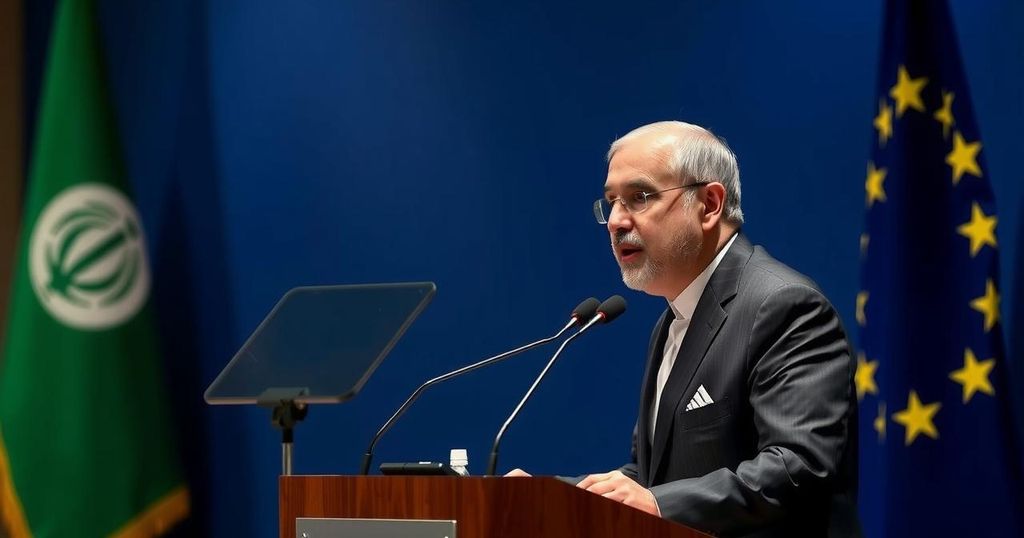Global news
ABBAS ARAGHCHI, AGENCE FRANCE PRESSE, ARAGHCHI, ASIA, DIPLOMACY, EUROPE, EUROPEAN UNION, FOREIGN AFFAIRS, FRANCE, GERMANY, IAEA, INTERNATIONAL ATOMIC ENERGY AGENCY, IRAN, IRAN'S PRESIDENTIAL ELECTION, JEAN - NOEL BARROT, NUCLEAR AGREEMENT, SANCTIONS, UNITED KINGDOM
Fatima Khan
0 Comments
Iran’s Foreign Minister Warns Europe Against Critical IAEA Resolution
Iran’s Foreign Minister, Abbas Araghchi, has warned Germany, France, and the UK against presenting a critical resolution at the upcoming IAEA meeting, asserting that such a move would complicate diplomatic relations further. His comments were made during discussions with French Foreign Minister Jean-Noel Barrot.
Abbas Araghchi, the Foreign Minister of Iran, cautioned the three European nations—Germany, France, and the United Kingdom—against proposing a resolution critical of Iran at the forthcoming meeting of the International Atomic Energy Agency (IAEA). In a recent discussion with his French counterpart, Jean-Noel Barrot, Minister Araghchi expressed strong disapproval of the draft resolution, stating it would exacerbate tensions rather than resolve them. His remarks reflect Iran’s ongoing concerns regarding Western engagement and their implications for regional stability and diplomatic relations.
This warning comes in the context of ongoing negotiations surrounding Iran’s nuclear program and its compliance with the 2015 nuclear agreement, which has encountered significant challenges in recent years. The European powers have historically played a critical role in mediating discussions between Iran and other global entities, particularly concerning nuclear non-proliferation. The IAEA board meeting is a pivotal moment in evaluating Iran’s nuclear activities and the international response to its actions, leading to heightened sensitivities regarding resolutions that may be deemed unfavorable by Tehran.
In conclusion, Iran’s foreign minister has articulated a firm stance against proposed critical resolutions from European powers, emphasizing the need for diplomatic dialogue rather than contentious measures. This highlights the delicate balance of international diplomacy in the context of Iran’s nuclear program and underlines the potential risks of escalating tensions through unconstructive actions.
Original Source: www.barrons.com




Post Comment